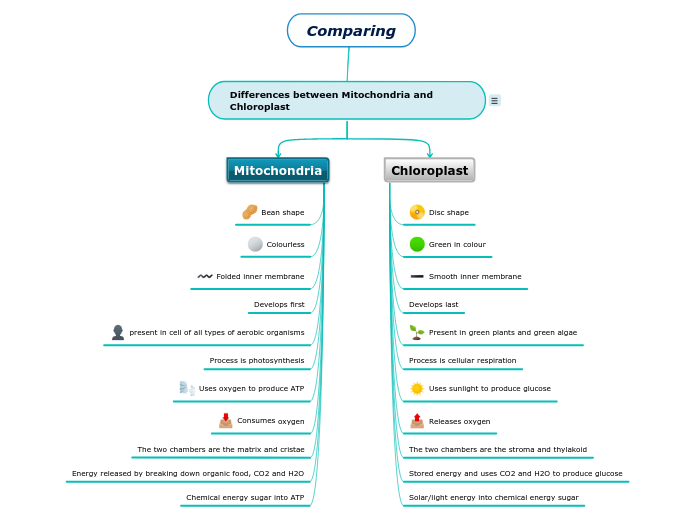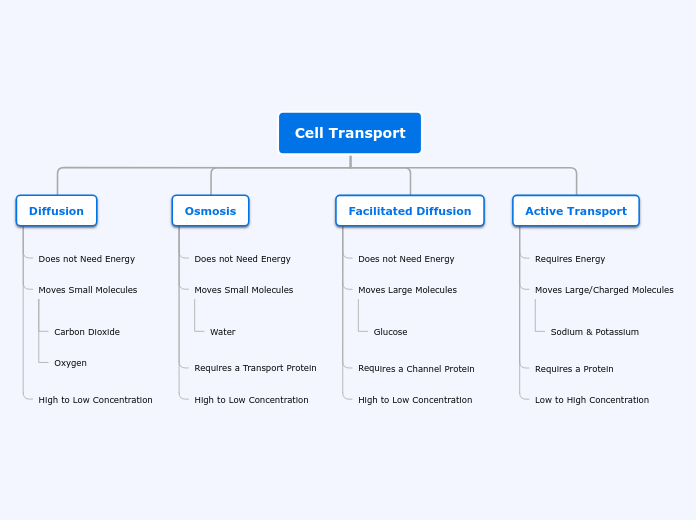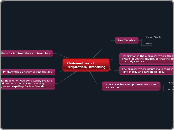Comparing
The advantages and disadvantages are the pros and cons of a certain topic, that each person considers thoroughly before making a bigger decision.
Differences between Mitochondria and Chloroplast
the points across each other are comparisons.
Add here the topic you want to reflect on!
It can be a serious life-changing matter or even a decision on whether to buy a new car or not!
You can describe here why you need this decision or add any other considerations in this regard.
Chloroplast
Solar/light energy into chemical energy sugar
Stored energy and uses CO2 and H2O to produce glucose
The two chambers are the stroma and thylakoid
Releases oxygen
Uses sunlight to produce glucose
Process is cellular respiration
Present in green plants and green algae
Develops last
Smooth inner membrane
Green in colour
Add your counterarguments here!
Disc shape
Add your counterarguments here!
Mitochondria
Chemical energy sugar into ATP
Energy released by breaking down organic food, CO2 and H2O
The two chambers are the matrix and cristae
Consumes oxygen
Uses oxygen to produce ATP
Process is photosynthesis
present in cell of all types of aerobic organisms
Develops first
Folded inner membrane
Colourless
Bean shape
Add your pro arguments here!









